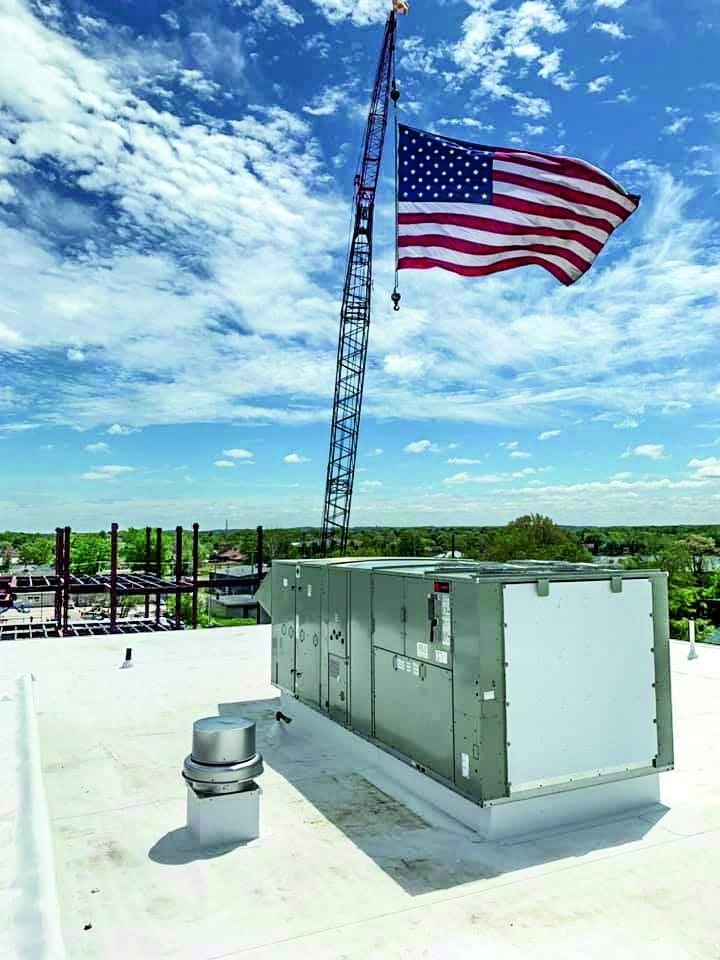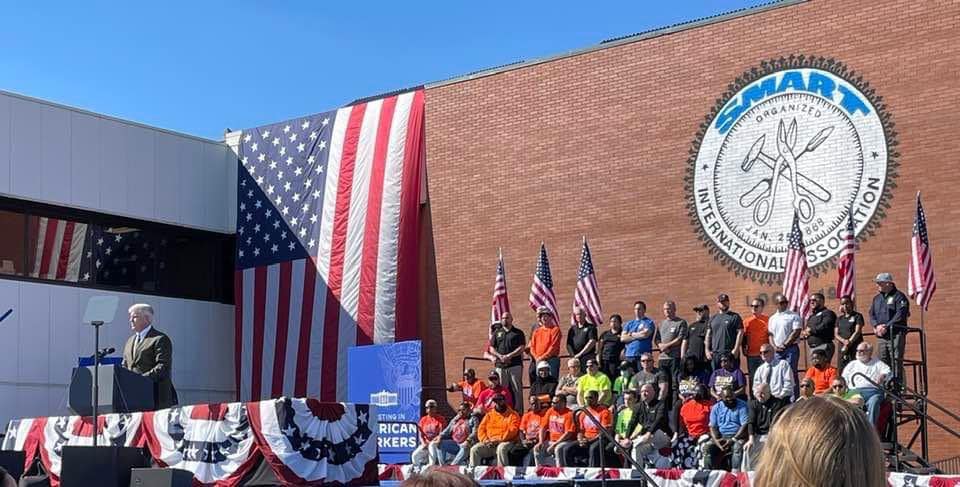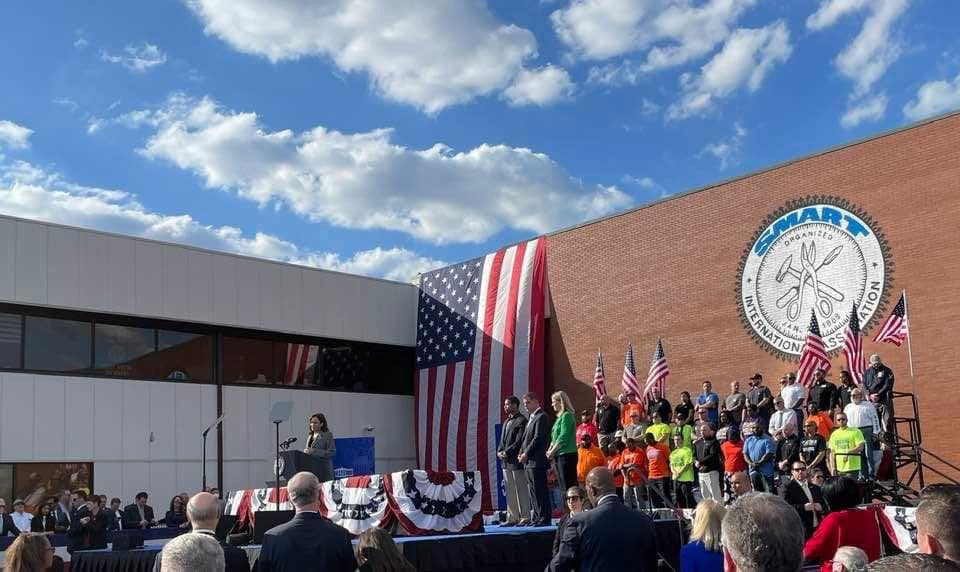Two years of pro-worker progress create jobs; SMART members directly benefit from new work opportunities
On Nov. 15, 2021, after years of political pressure from SMART and fellow unions, President Joe Biden signed the Infrastructure Investment and Jobs Act (IIJA), now known as the Bipartisan Infrastructure Law, which will invest more than $1 trillion in our nation’s crumbling infrastructure. The law promises to create good union jobs and put SMART members into action, improving indoor air quality in schools and commercial and residential buildings.
The International Training Institute (ITI), National Energy Management Institute Committee (NEMIC) and Sheet Metal Occupational Health Institute Trust (SMOHIT) will all benefit from the passage of this legislation, as the law will bolster the need for training more SMART members.
The law promises to create good union jobs and put SMART members into action, improving indoor air quality in schools and commercial and residential buildings.
Specific parts of the legislation will directly impact the SMART workforce. Below are some of the highlights of the law and where growth is anticipated over the next five years:
Energy efficiency in public schools
Under the law, the Department of Energy (DOE) will have $500 million to run a competitive grant program for public schools to make energy efficiency improvements. This program aims to improve indoor air quality and make repairs or renovations that directly reduce energy costs on school grounds.
In addition, states have been allocated funds to enhance energy security, advance energy initiatives and maximize the benefits of energy efficiency. Through additional grant programs, states are encouraged to establish initiatives to conduct commercial or residential energy audits or upgrades and retrofits.
Efficient building envelopes, testing, adjusting and balancing (TAB) and indoor air quality will be instrumental in retrofitting school buildings and new construction projects.
TAB technicians and supervisors needed
The Energy Auditor Grant Training Program will provide funding — up to $2 million per state — to train individuals to conduct audits or surveys on commercial and residential buildings. Training centers that do not already offer TAB should look to pair up with their state to apply for these grants or contact the ITI for assistance.
Opportunities to change local building codes
A total of $225 million has been designated for a competitive grant program within the Building Technologies Office to enable sustained, cost-effective implementation of updated building energy codes. This funding is designed to be distributed over five years, averaging $45 million per year.
These grants are available to states and tribal governments — either alone or in partnership with local building code agencies, codes and standards developers, relevant professional organizations, local and utility energy efficiency programs or consumer advocates. The overarching goal is to help understaffed and underfunded local governments upgrade their building codes to the most up-to-date energy efficiency standards.
New markets and emerging technologies
Building information modeling (BIM) will be more important than ever. Experts are predicting that connected construction technologies like BIM will drive the construction industry in the future. A larger integration of modularization and prefabrication in the design and build process is at the forefront.
The law will open new markets for SMART members and present new challenges in the training and deployment of those members. Over the next five years, we will all need to work together to press for funding for our registered apprenticeship programs.
We have a substantial opportunity to change and update building codes at the local, state and national levels. And we have a once-in-a-generation chance to put more members to work.
Safety is paramount
When the initial hiring begins, a labor shortage is anticipated. One of the main concerns with filling a large labor gap is doing so in a safe manner. SMOHIT and the ITI have created training and have the resources needed for work to be completed correctly and safely.
Moody’s Analytics, an economic research company, projects that the law’s peak labor force impact will occur in the fourth quarter of 2025, when there will be 872,000 more jobs as a result of the law. Of those jobs, about 461,000 are expected to be in construction; 227,000 in manufacturing; 75,000 in transportation and distribution; 35,000 in government; and 73,000 in other industries.
Apprenticeships will be more important than ever as the law is implemented. While we have the tools to train the next generation of sheet metal workers, we need the companion Build Back Better legislation to provide more funding for training. If you haven’t done so already, contact your senators and tell them to pass the Build Back Better Act.
It is time to get to work rebuilding America’s infrastructure.


